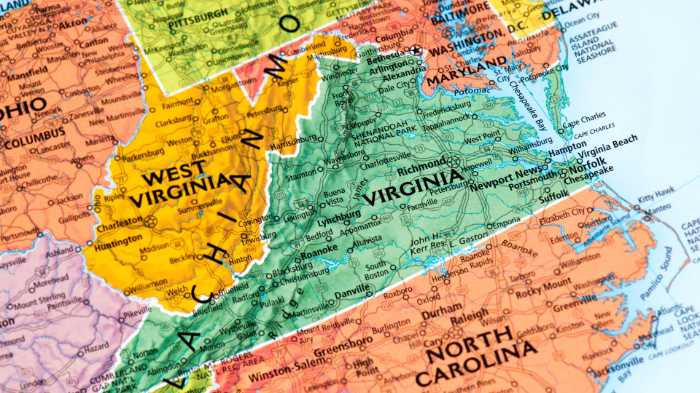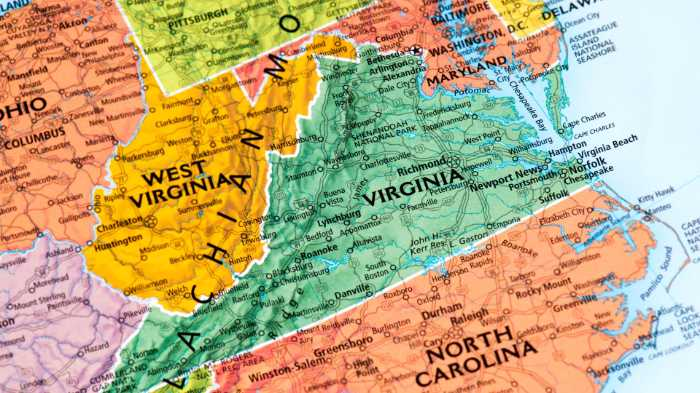
Every business, no matter its size, wants to do its part in preserving natural resources while still being profitable. For small and medium businesses in Virginia, there are a few ways out there that can help you achieve both of those goals. Initiatives like ESG (environmental, social, and governance) and sustainability can seem daunting at first but offer great benefits for your company in the long run. Here we will discuss what ESG and sustainability mean for your business, and how to get started!
- What is ESG and Sustainability?
- What do ESG and Sustainability mean for businesses in Virginia?
- How can companies in Virginia get started with Sustainability?
- What is corporate sustainability for small and medium-sized enterprises in Virginia?
- How can small businesses prepare sustainability reports?
- Is Virginia sustainable?
- FAQs
What is ESG and Sustainability?
ESG stands for environmental, social, and governance. Sustainability is defined as meeting the needs of the present generation without compromising the ability of future generations to meet their own needs. In other words, sustainability is about ensuring that our actions today do not have negative impacts on the planet or its people tomorrow.
ESG and sustainability are often used interchangeably, but they are not the same thing. ESG focuses on three specific areas: environmental protection, social responsibility, and good governance. Sustainability, on the other hand, is a broader concept that encompasses ESG but also includes economic factors.
At its core, sustainability is about creating value for all stakeholders – not just shareholders. It takes into account the environmental and social impacts of our actions, as well as their financial repercussions. In other words, it’s a long-term view that considers the triple bottom line of people, planet, and profit.
Sustainability is becoming increasingly important to businesses of all sizes across all industries. Consumers are increasingly interested in buying from companies that have sustainable practices in place, and investors are also looking for companies that are incorporating sustainability into their business models. In fact, a recent study found that nearly two-thirds of institutional investors believe that sustainability leads to better financial performance.
ESG and sustainability are not just buzzwords – they are key considerations for any business that wants to be successful in the long term. Being mindful of our impact on the environment and society is not only the right thing to do, but it makes good business sense.
What do ESG and Sustainability mean for businesses in Virginia?
ESG (environmental, social, and governance) and sustainability are two of the most important issues facing businesses today. In Virginia, businesses must increasingly focus on these issues in order to remain competitive. There are a number of reasons for this:
First, ESG and sustainability are becoming more important to consumers. Increasingly, consumers are interested in supporting businesses that are transparent and have a positive impact on the environment and society. This trend is only going to continue, which means that businesses that don’t focus on ESG and sustainability will be at a disadvantage.
Additionally, investors are also taking an interest in these issues. Many institutional investors now consider ESG factors when making investment decisions, which means that companies that don’t take these factors into account may have difficulty accessing capital.
Finally, it’s worth noting that ESG and sustainability can also help businesses to improve their bottom line. Companies that focus on ESG issues often find that they can save money by reducing their waste and energy consumption, improving their supply chain efficiency, and attracting and retaining top talent.
For these reasons, it’s clear that small and medium companies in Virginia need to incorporate ESG considerations in their business operations.
Is ESG reporting mandatory in Virginia?

Many businesses are wondering if ESG reporting is mandatory in Virginia. Unfortunately, the answer is a little bit complicated. While there is no explicit mandate requiring businesses to report on their environmental, social, and governance practices, there is a growing expectation that companies will voluntarily disclose this information. This expectation is driven by a number of factors, including the increasing popularity of socially responsible investing, the launch of ESG reporting standards by the Sustainability Accounting Standards Board, and the availability of helpful ESG-related resources from organizations like the Global Reporting Initiative. Another similar example on the global front is the Sustainable Finance Disclosure Regulation which works for sustainability in the financial marketplace of Europe.
Moreover, companies operating in industries that are subject to environmental regulation may find it beneficial to report on their ESG practices as a way to demonstrate their commitment to sustainability. Ultimately, whether or not to report on ESG activities is a decision that each business will need to weigh based on its unique circumstances. However, those businesses that do choose to report will likely find themselves at the forefront of a new era of sustainable capitalism.
How can companies in Virginia get started with Sustainability?

Many small and medium businesses in Virginia are already taking steps toward sustainability, but there is always room for improvement. There are a few easy ways to get started:
1. Reduce waste
Reducing the amount of waste your business produces has numerous benefits. It reduces your disposal costs, frees up storage space, and improves your bottom line. In addition, it also helps to protect the environment by reducing the amount of waste that goes into landfills. There are many ways you can help reduce waste and improve sustainability:
First, try to source materials locally to reduce transportation emissions. Second, reduce packaging by using reusable containers or investing in bulk purchases. Third, encourage employees to recycle and compost office waste. Finally, consider donating unwanted products or materials to local charities or organizations that can reuse them. By implementing even a few of these strategies, you can achieve sustainability targets and make a significant impact on your bottom line and the environment.
2. Responsible water use
Water is essential for life, and sustaining the water resources of Virginia is critical to ensuring a healthy environment for future generations. Businesses in Virginia can play an important role in responsible water use through a variety of methods, including water conservation, source reduction, and stormwater management.
Water conservation is a key part of responsible water use, and there are a number of ways businesses can do that. One way is to install low-flow plumbing fixtures, which can save thousands of gallons of water per year. Another way to conserve water is to practice drought-tolerant landscaping, which can help reduce the need for irrigation.
Source reduction is another important aspect of responsible water use, and it refers to actions taken to reduce the amount of pollutants that enter our waterways. For example, businesses can reduce stormwater runoff by installing rain barrels or green roofs.
Stormwater management is also an important tool for responsible water use, and it involves using best practices to reduce the impact of storms on our waterways. For example, businesses can install rain gardens or permeable pavement to help absorb stormwater and prevent flooding.
By taking action to conserve water and reduce pollution, businesses in Virginia can make a positive impact on our state’s environment. These actions will not only help protect our water resources, but they will also create a more sustainable business model that will benefit Virginia’s economy in the long run.
3. Be transparent
Being transparent is one of the most important aspects of being a sustainable business. Customers want to know that the businesses they support are operating in an ethical and responsible manner. Furthermore, transparency helps to build trust between businesses and their stakeholders. In order to be transparent, businesses should start by disclosing their environmental and social impact. This can be done through sustainability reports or by posting information on the company website.
Additionally, businesses should consider hosting events or creating marketing materials that discuss their sustainability initiatives. By taking these steps, businesses can show that they are committed to being transparent and accountable for their actions.
4. Educate employees
Small and medium businesses in the state of Virginia should educate their employees on sustainability issues. This will ensure that everyone is on the same page and understands the importance of sustainability. Additionally, it will allow businesses to identify opportunities for improvement.
There are a number of ways to educate employees on sustainability, such as providing training materials or holding workshops. Once employees are up to speed, businesses can start implementing sustainable practices into their day-to-day operations. In time, these efforts will help make the state of Virginia a more sustainable business place.
5. Initiate an energy audit
A good place to begin your path toward sustainability is by conducting an energy audit. This will help you to identify areas where your business can be more efficient in its use of energy, and can also help to identify potential cost savings. There are a number of ways to conduct an energy audit, but one common method is to use an online calculator. These calculators will ask you questions about your business’s energy use, and will then provide you with recommendations on how to improve efficiency. Once you have identified areas for improvement, you can then work on implementing changes that will help your business save energy and money.
Another simple way is keeping a notebook by your side and jotting down how much electricity you use each day. Once you have a week or two of data, you can start to see patterns and make changes accordingly. For example, if you notice that your energy usage spikes during the summer months, you may want to invest in energy-efficient cooling systems.
You can’t improve what you don’t measure.
Free Verified Carbon Calculators.
Erase Your Carbon Footprint in less than 5 Minutes
Personal Carbon Footprint Calculator
Business Carbon Footprint Calculator
6. Diversity and inclusion
When it comes to sustainability, there are a number of reasons why promoting diversity and inclusion is important for businesses. First, it helps to create a more inclusive workplace environment where everyone feels valued and respected. This can lead to higher levels of employee engagement, which can in turn improve productivity and performance.
Additionally, promoting diversity and inclusion can help businesses to tap into new markets and expand their customer base. Studies have shown that consumers are increasingly interested in doing business with companies that reflect their values, and that includes supporting businesses that are committed to diversity and inclusion.
So how can Virginia businesses get started with promoting diversity and inclusion? There are a number of ways, but one key step is ensuring that your recruitment process is fair and inclusive. This means considering a wide range of candidates from different backgrounds and using objective criteria to assess their qualifications.
Additionally, once you’ve hired a diverse workforce, it’s important to create an environment where everyone feels welcome and respected. This includes providing training on unconscious bias and promoting open dialogue about these issues. By taking these steps, Virginia businesses can create a more sustainable future for themselves and for the state as a whole.
7. Upcycling
Upcycling is the process of taking waste or unused materials and turning them into new, useful products. This can be anything from repurposing an old piece of furniture to using leftover fabric to make a new shirt. Not only does upcycling help to reduce waste, but it can also be a great way to save money and create unique, one-of-a-kind products. Plus, customers are often willing to pay more for upcycled goods knowing that they are helping to support a sustainable business.
8. Wastewater management
Wastewater management is a great tool to incorporate into your ESG framework. Treatment and disposal of wastewater can be expensive, so it’s important to have a plan in place to minimize costs. One way to do this is by partnering with a local wastewater treatment facility. This way, you can avoid the high costs of operating your own treatment plant. Another option is to use gray water recycling. This involves using treated wastewater from showers, sinks, and washing machines to water plants or flush toilets. Not only does this save water, but it also reduces the strain on your septic system.
Finally, you can reduce the amount of waste generated by your business by implementing a comprehensive recycling program. By working together, Virginia businesses can make a real difference in the race toward sustainability and the fight against climate change.
9. Green packaging
Green packaging is an easy attraction for ESG investors and consumers. Plus, it paves the way toward a sustainable future for your business. There are many benefits to using environmentally friendly packaging. First, it can help to reduce your carbon footprint. Second, it sends a message to your customers that you care about the environment. And last but not least, it can save you money in the long run.
So how do you get started with green packaging? The first step is to choose materials that are recyclable or compostable. Some good options include paper, cardboard, and biodegradable plastics. You should also avoid using excessive packaging, and try to use recycled materials whenever possible.
Once you have decided on the right materials for your packaging, the next step is to find a supplier who can provide them. There are many companies that specialize in eco-friendly packaging, and they will be able to help you find the right solution for your business.
Making the switch to green packaging is a great way to show your commitment to sustainability. It’s an easy way to make a big difference, and it can help your business save money and become more environmentally friendly.
10. Support local communities
As a small or medium business in Virginia, you can support local communities in a number of ways that will help make them more sustainable. One way is to buy locally produced goods and services whenever possible. This helps to boost the local economy and reduces the environmental impact of transportation. You can also get involved in community projects that aim to improve energy efficiency, reduce waste, or promote recycling.
By supporting these initiatives, you’ll be helping to make your community more sustainable while also raising awareness of the importance of sustainability among your employees and customers. In addition, you can also use your business as a platform to educate others about sustainability issues and encourage them to take action in their own lives. By taking these steps, you’ll be playing a key role in making Virginia a model state for others to follow.
11. Buy-in from stakeholders
Getting buy-in from stakeholders is key for small and medium enterprises in Virginia who want to make a difference in the company’s business model. By engaging with stakeholders, businesses can identify areas where they can make improvements that will benefit society, the environment, and the bottom line.
Additionally, stakeholder buy-in can help to build support for sustainability initiatives within the company, making it more likely that employees will be willing to make changes in their own behavior.
Finally, outside support from stakeholders can also provide valuable resources and expertise that can help a business to implement sustainable practices. Ultimately, buy-in from all stakeholders is essential for small and medium companies in Virginia who want to get started on the path to sustainability.
What is corporate sustainability for small and medium-sized enterprises in Virginia?

Corporate sustainability is the business practice of creating value for both shareholders and society at large. In Virginia, corporate sustainability is achieved through a commitment to environmental stewardship, social responsibility, and economic development. This triple-bottom-line approach creates shareholder value by reducing operating costs, mitigating risks, and increasing revenues. It also benefits society by creating jobs, protecting natural resources, and improving local communities. Ultimately, corporate sustainability is about creating long-term value for all stakeholders.
Corporate sustainability is often thought of as a large-scale undertaking that is only within the purview of major corporations. However, small and medium enterprises play a critical role in this effort, as they account for a large percentage of businesses in the state.
There are many reasons why SMEs should consider corporate sustainability, including reducing their environmental impact, improving their financial performance, and attracting and retaining talent. Perhaps most importantly, though, corporate sustainability simply makes good business sense. In an increasingly competitive marketplace, businesses that can demonstrate their commitment to sustainability will have a significant advantage.
How can small businesses prepare sustainability reports?

When it comes to sustainability reporting, small businesses may feel like they are at a disadvantage. After all, large corporations have entire teams dedicated to monitoring their environmental impact and writing detailed reports. However, there are a number of ways that small businesses can prepare their own sustainability reports.
The first step is to define what information should be included in the report. This can vary depending on the business and the industry, but it might include data on energy use, waste reduction, carbon emissions, water conservation, and sustainable sourcing initiatives.
Once the scope of the report has been determined, the next step is to gather the relevant data. This can be done through invoices, utility bills, and production records. Once the data has been collected, it is time to start writing the report. When writing a sustainability report, it is important to be clear and concise. The goal is to provide readers with an accurate snapshot of the company’s progress and identify areas for improvement. With a little planning and effort, any small business can prepare a comprehensive sustainability report.
Is Virginia sustainable?

Virginians are staunch defenders of their natural resources. From the Chesapeake Bay to the Appalachian Mountains, Virginians take great pride in their iconic landscapes and ecosystems. When it comes to sustainability, Virginia is definitely a state to watch. It was the first southern state to set a goal of becoming carbon-free by 2045, and it is already making significant progress in the transition to clean energy sources. Virginia is set to close all coal plants by 2024 and has also joined the carbon cap-and-trade market, which is a big step forward in curbing climate change. Furthermore, Virginians are committed to making their state a better place for all, through initiatives like ending reliance on fossil fuels, creating clean energy jobs, and helping businesses become sustainable and transparent. With over 750,000 small businesses employing a total of 1.5 million people, Virginia is clearly a state that has so much potential in the smaller business sector.
Conclusion
If you are a business owner or are operating a business in Virginia Beach, Norfolk, Chesapeake, Richmond, Newport News, Alexandria, Hampton, Roanoke, Portsmouth, Suffolk, Lynchburg, Harrisonburg, Charlottesville, Danville, Blacksburg town, and Leesburg town then maintaining a good reputation of your company is very crucial. By taking responsible business measures, you can ensure value to the consumers, clients, and stakeholders. In return, this will offer your business loyal customers, improved efficiency, much-needed financing and contracts, a better employee retention rate, and a competitive advantage in the market. If you have any ESG-related questions from any corner of America, download the free ESG checklist. This will clear your concerns regarding sustainability and put you at the forefront of success.
FAQs

What is sustainable investing?
Sustainable investing is an investment strategy that considers a company’s environmental, social, and governance (ESG) strategies when making investment decisions. Sustainable investors believe that a company’s ESG focus will create long-term shareholder value and positively impact other stakeholders, such as employees, customers, and the community. While sustainable investments were once considered a niche strategy, they have gained mainstream appeal in recent years as more companies have adopted ESG strategies. As a result, sustainable investments are now one of the fastest-growing segments of the investment industry.
What does corporate governance mean for smaller companies?
Corporate governance refers to the set of policies, processes, and practices that companies use to manage their businesses and make decisions. For smaller companies, corporate governance is about managing relationships with diverse stakeholders, including shareholders, employees, customers, and suppliers. It’s also about complying with laws and regulations and adhering to ethical standards. ESG principles should be a key part of corporate governance, as they help companies to manage environmental, social, and governance risks.
How can small business fulfill their corporate social responsibility?
There are a number of ways that small businesses can fulfill their corporate social responsibility. One way is to track and report their ESG data. This data can be used to measure progress against goals and to improve performance over time. Additionally, small businesses can use ESG metrics to compare themselves against similar businesses and benchmark their progress.
How does the Environmental Protection Agency assist small businesses?
The EPA provides small businesses with resources and support to help them reduce their environmental impact. Through its website, the EPA offers tips and resources on a range of topics, from reducing greenhouse gas emissions to improving energy efficiency. The EPA also runs programs that provide financial assistance to small businesses looking to improve their environmental performance.
What is ESG investing?
ESG investing is a particular investment plan that takes into account environmental, social, and governance criteria in investment decision-making. It is also called responsible investment. ESG criteria can also be used to engage with companies on shareholder rights, human rights, and other issues. When ESG factors are integrated into the investment process, they can help to create long-term value for investors and society as a whole.
Savvy business leaders have also read…
Sustainable Development: A Comprehensive Guide to Training on Sustainability

Dean Emerick is a curator on sustainability issues with ESG The Report, an online resource for SMEs and Investment professionals focusing on ESG principles. Their primary goal is to help middle-market companies automate Impact Reporting with ESG Software. Leveraging the power of AI, machine learning, and AWS to transition to a sustainable business model. Serving clients in the United States, Canada, UK, Europe, and the global community. If you want to get started, don’t forget to Get the Checklist! ✅
